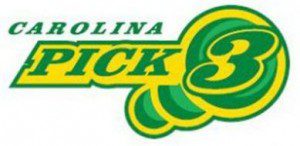North Carolina state legislators are considering a proposal to bar the sale of lottery tickets to people who qualify for welfare or are in bankruptcy.
This effort reeks of that weird, seething resentment of the poor that twists so much of American policy — reshaping it around the driving principle that we must, at all costs, make sure no tax dollars are ever spent in a way that would give any poor person, anywhere, even a single moment’s pleasure. At best, the plan represents a heavy-handed, micro-meddling paternalism that treats the poor as a sub-citizen class subject to special rules and regulations, supposedly for their own good.
 But I’m also sympathetic to part of House Majority Leader Rep. Paul “Skip” Stam’s argument here, because Stam is right about this much: State lotteries are a rip-off and they prey on the poor.
But I’m also sympathetic to part of House Majority Leader Rep. Paul “Skip” Stam’s argument here, because Stam is right about this much: State lotteries are a rip-off and they prey on the poor.
Consider the most basic games: the Pick 3 or Pick 4 daily number games.
What are the odds of winning the Pick 3? 1 in 1,000. Is the jackpot for a $1 bet $1,000 or greater? Not even close.
What are the odds of winning the Pick 4? 1 in 10,000. Is the jackpot for a $1 bet $10,000 or greater? Not even close.
These are lousy games. They’re predatory games that stack the deck. You’ve got much better odds at the slots or at the track.
When Stam says games structured like that are “essentially a scam,” he’s telling the truth.
Stam is just leaving out part of that truth — that this scam is North Carolina’s, and almost every states’, response to his Republican party’s decades-long war against adequate revenue through legitimate taxation.
You can oppose the predatory scam of the state lotteries. Or you can be a reflexively anti-tax disciple of Grover Norquist. But you cannot do both.
Stam also said that some of the North Carolina lottery advertising is “just fraudulent,” according to the Raleigh News & Observer.
That’s also true. State lottery advertising regularly violates the law governing the advertising of every other type of contest, raffle or sweepstakes. But state lotteries are, legally, allowed to be fraudulent. State lotteries are exempt from truth-in-advertising laws.
Stam is a North Carolina Republican, and I’m pretty sure there’s not much that he and I would agree on politically. But if he introduced legislation to remove the lotteries’ exemption from truth-in-advertising laws, I’d back that effort 100 percent.












